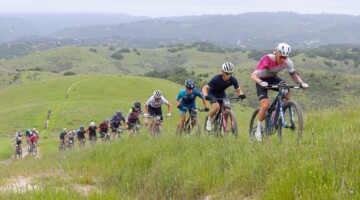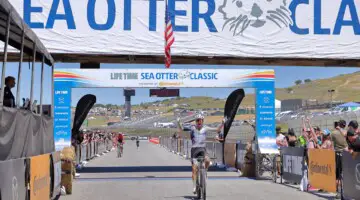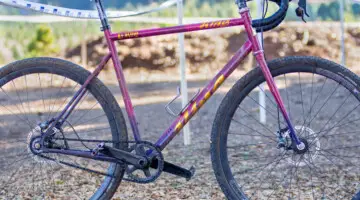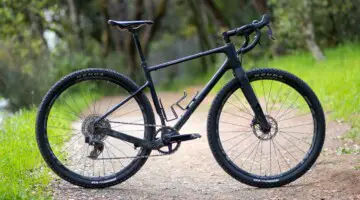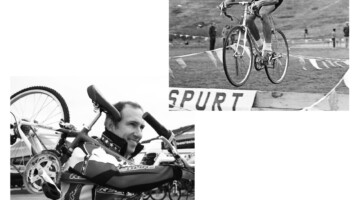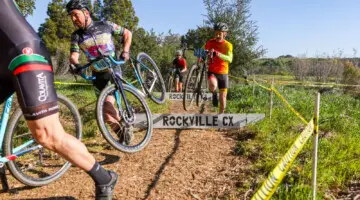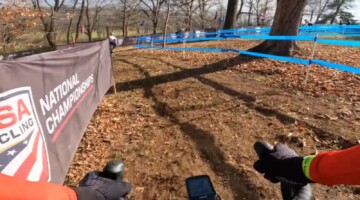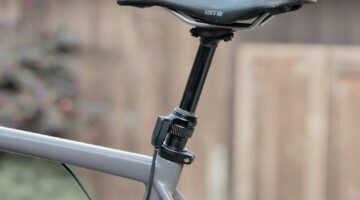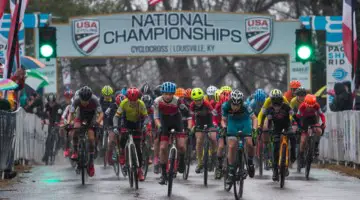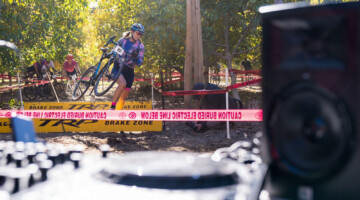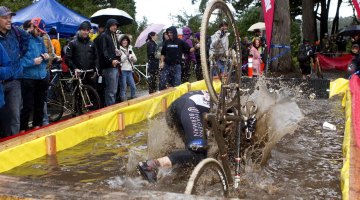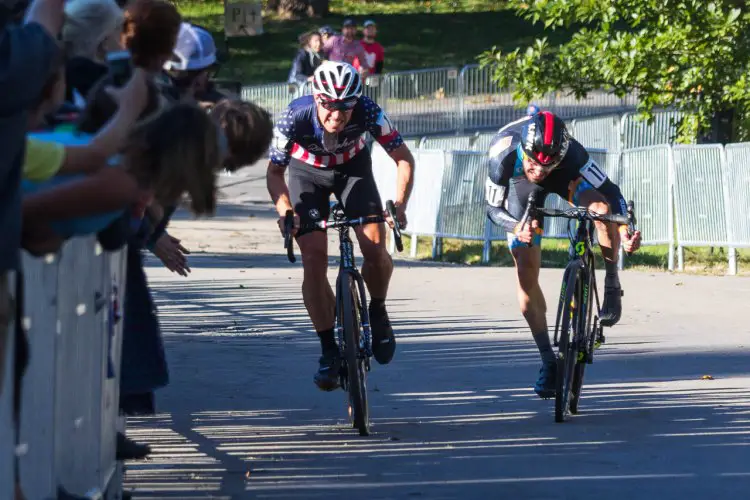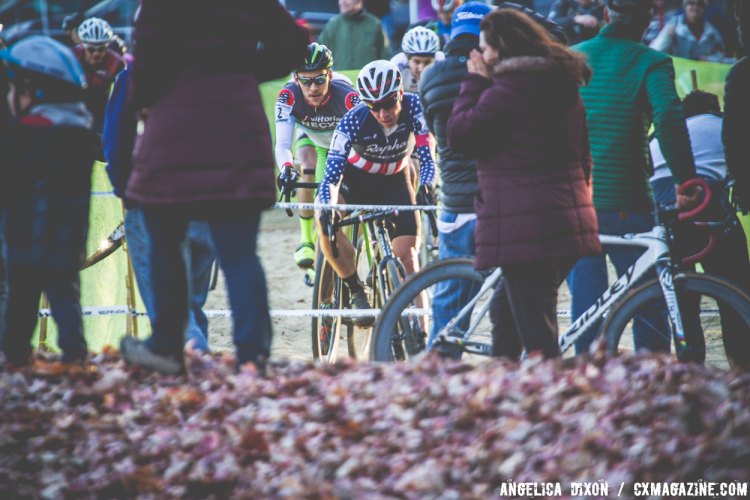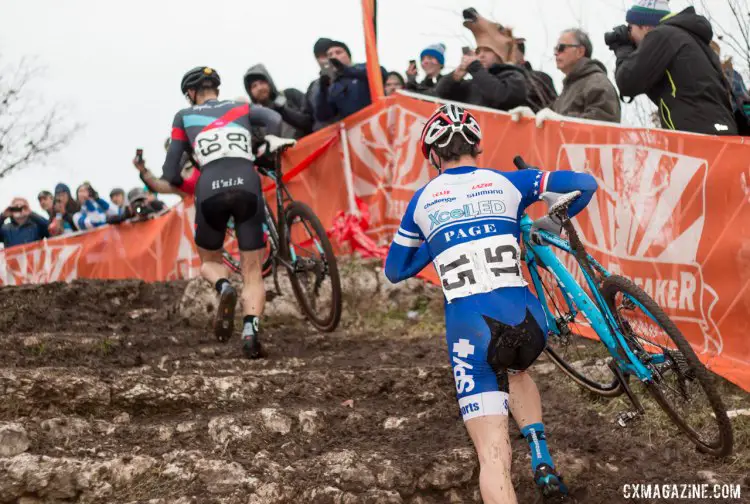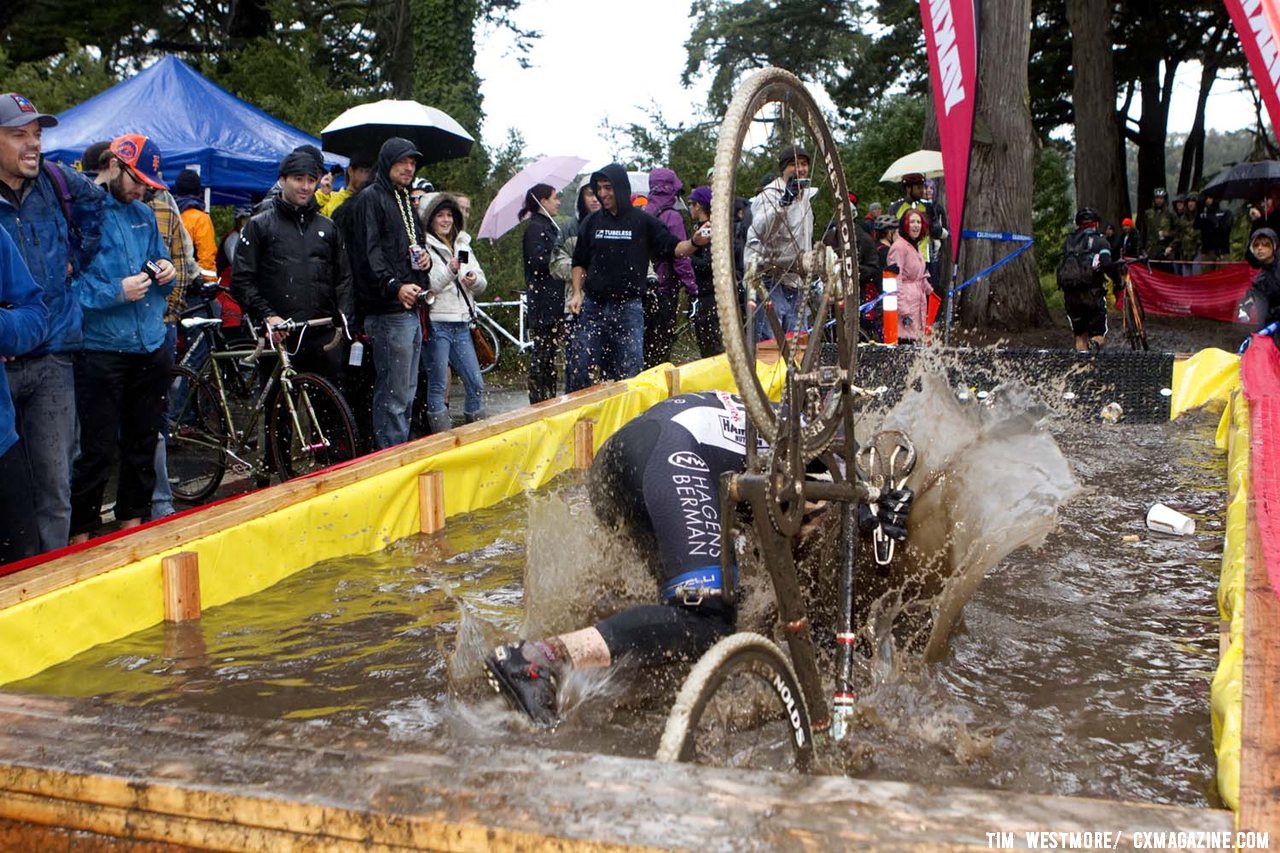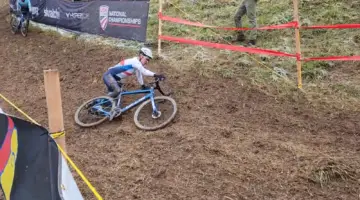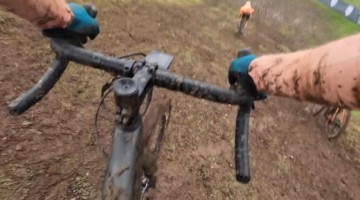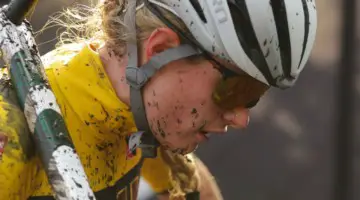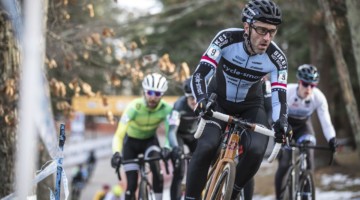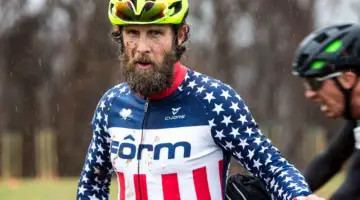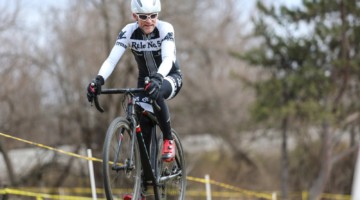U.S. Cyclocross Nationals in the 2010s have belonged to Jeremy Powers. He has won four of the last five events, including three in a row, but on Sunday in Hartford he enters the race as an underdog. Powers suffered a painful crash at the Trek CXC Cup in September and has been working to recover his fitness and racing confidence over the past several months.
Zachary Schuster of Cyclocross Magazine caught up with Powers this week while he was driving to Hartford to talk about how his training has been going and what his expectations are for the 2017 Nationals in Hartford.
Cyclocross Magazine: Pretty much any cyclocross racer in America would die for the season you’ve had, but it’s probably been a disappointment for you. What’s it been like? And how does that affect your perception or how you’re thinking about coming into Nationals?
Jeremy Powers: Yeah, I mean it’s definitely been way different for me. The last few seasons I’ve been super grateful for all the luck and everything that I’ve had, right? I’ve had a lot of, because it does take more than just obviously having the legs, you do have to have a bit of luck and you can say 100 different things about it, like, “Oh, well, you make your own,” and this and that, but the truth is that at some point it catches up with you.
This year I missed out on some of it, right? A crash that did hit my chest, as you know, and that story’s been widely talked about, but it wasn’t ideal by any stretch.
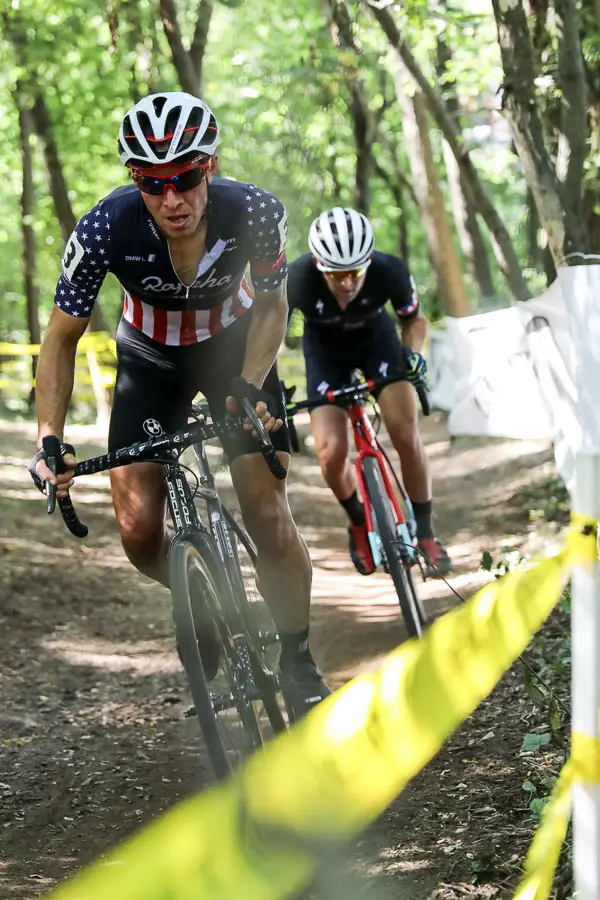
The day that changed the season: Jeremy Powers crashed early and would abandon the C1 Trek CXC Cup, but he gave chase as he tried to salvage his only race day in Waterloo. Elite Men, 2016 Trek CXC Cup Day 2 © Jeff Curtes
Finishing off of the podium in some events and riding with younger riders who I don’t know as well was definitely different but also humbling. I would say I learned a lot through that experience of being in the back and having to reassess and also overcome mental doubt and what’s happening with my season and what’s happening with my body and can I still come up to this level and such.
You do fight with it, but knowing bike racing, sometimes it just doesn’t make sense and that’s what you have to remember. I always go back to, okay, it doesn’t make, sometimes bike racing doesn’t make sense and you just have to continue on and soldier on and get on with it.
CXM: What was it like still being Jeremy Powers and not being on the podium and struggling through that? You couldn’t just go hide, essentially.
JP: Right. No, and that has been something that I’ve, I mean, I used to get upset when I didn’t place in the top 15 of a World Cup, especially if that came back to me dabbing at a certain point in the race that opened up a couple bike lengths that got me off the group that was sprinting for a top 15. I’m the hardest person on myself.
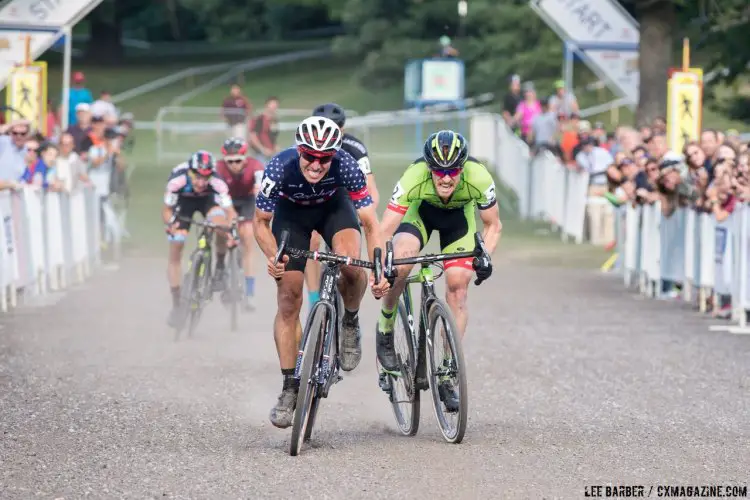
Jeremy Powers has been nothing but complimentary on Stephen Hyde’s season. photo: Powers outkicks Stephen Hyde for a rare C2 race win after skipping most C2s the last two years. Rochester Cyclocross 2016, Day 2, Elite Men. © Lee Barber
Coming off of, yeah, how do you deal with that, I think it’s like anyone in any type of hardship, you just try to channel and surround yourself with the best people that you can. Those happen to be my family and friends and my teammates and the people, the staff, on my program. We just try to soldier on and everyone stayed positive and saying that it’s possible.
With an injury there’s a little bit of the reality of it, as well. Once you start to accept that you’re injured, then you can start working forward, but at first, for me, I was sort of denying that I actually had a decent injury that I needed to do some rehab with and I needed to get back on. Then I followed that up with a lot of hard training.
Some of the results that I had, this is a little bit off your subject, but some of the results that I had were overshadowed by Stephen [Hyde] having a great season, but I don’t want to get too ahead of myself and say that I didn’t have a good season because I came back from a fairly good setback and I was still able to get a slew of second places against someone who’s having the best season of their career. And is not just having their best season, but is also doing very well across the pond, as well, against some of the best riders in the world. You have to measure that. I’m not so far removed from the days when Tim and Ryan took many took many second places and they were riding really strongly and I was the one that was the victor.
CXM: You spent some time in New Mexico. What was that and to what length did that help prepare you for this race this weekend?
JP: I came back from, actually the last time I was home just before this trip was after Louisville, and after Louisville we went to race overseas at the German, I guess, Koksijde, originally, the Koksijde and Germany World Cups.
Instead of going back home, I’ve always done very well in Colorado, so I initially went to Colorado because my mechanic, Tom Hopper, lives there, and I have a lot of good friends with resources like scooters and housing and accommodations and such. Boulder’s always been a great place for me to train out of and get prepared for the preseason.
In this case, I felt like I needed to sort of start over and rebuild and do another block of volume and then as well as lay on some intensity. On top of that I have a chiropractor and some friends that I really like seeing there. Massage and such. All of those things were why I went there directly after the World Cup in Germany.
From there, it got really cold and nasty, so instead, my wife had came out, and I decided that we were going to drive down to Albuquerque, New Mexico. It’s still at altitude, but significantly warmer and a lot more dry days. I had never been to Albuquerque, but the point of that trip was really to just get my fitness back under me and to feel at 100% of my capability because I felt like I was coming in, outside of a handful of races this year, maybe Pan American Champs, second day at Louisville, where I was at least on point and I felt like my old self, although I don’t know if I was riding at 100%, I felt like I could do something in the races versus anything else that was happening in the other parts of the year where I was coming back from injury or I felt like this wasn’t a perfect day for me.
That was the point of the trip, to come back, try to have a great end of my season, and win, lose, or draw, I feel like I put out 100% of myself in the training block and from a power meter standpoint, from a weight standpoint, I did get back to my original numbers, which means something to me. If to no one else, that means something to me that it’s still possible. After a season of sub-par results, that was a nice feather in my cap going forward.
CXM: You brought up a good point though, of not feeling like yourself. I think everyone in American who follows ‘cross knows what you can do, but what’s it like for you, you step on the pedal and the power’s not there or there’s a corner that you feel a little tentative in, what’s that like experiencing that and how did you overcome to get back to feeling like Jeremy Powers?
JP: Really it’s through reflection, of course. When you see a big rider on the road or a big rider in cyclocross have a big crash, the thing that makes it a little bit better is time.
For me, yes, there was some, you have to lean the bike a lot at a race like Louisville, you had to really push the limits and there’s a risk of re-injuring a rib injury, for instance. How do you get back there is just through doing it. Putting the leg over the bike everyday and believing in the end goal, which, for me, isn’t the motivation to get on the bike. If you ask anyone who surrounds themselves with me, that’s there, I get on the bike everyday and I do the work that needs to be done.
I’d say the thing is just the constant pounding your head against the wall wondering if it’s going to come back or not. Okay, this is all great that all of these things are happening, but I’m not getting the same feedback, which is a race win or a strong result as my feedback system, in my loop. You need that confidence loop. When that confidence loop is gone, then you have to find something else.
That’s what I say when I say I learned a lot about myself, is that without that loop I was still able to move forward from the point where I was at. Be honest, like okay, I’m a little overweight, I had a little less power than I need, and these are, my back, all of these core exercises, I’ve been just trying to drill training and do almost like emergency training instead of getting back to ground zero and just building from the bottom up as I would if I was starting at the beginning of a season.
That’s where it’s just based on being a pro for a very long time. You know what you have to do and pulling your big boy pants up and just going for it, man. That’s it. You just got to saddle up and ride. I can’t keep looking back and thinking, oh this guy did this, this guy did that, no, you’re absolutely right, I know what I can do on the bike, I know what good power output is, I know what good weight is, and I know how to get myself into shape to be 100%.
CXM: Is there one most important thing that you’ve learned about yourself during this experience?
JP: Some of it is that I’m extremely type A, and I think learning how to deal with those setbacks and being at peace with the process is something that is forever valuable to me moving forward. It cannot happen in a day. It cannot happen in two days. I have exercised a lot of patience in my life, but for sure exercising patience, having empathy for others who have fought these same things and have had these same things happen in their career, because the list is very long, right?
Just look through the top tier of American cyclocross riders, the injuries and the way that their careers have ended, whether it’s Tim or Ryan or others. You start to learn that you’re not invincible. All of these one percent things have to be paid attention to and I’m just grateful that I can still enjoy the bike and I can get on it and I’m going to be able to line up as maybe a slight underdog, but as one of the favorites to potentially win and have the people that have given me a lot of their attention of these last five or six years of racing, that they’re going still be with me on that.
It’s still very special even though my season hasn’t gone well. The amount of people who have given me their support has been incredible. It’s been so flattering and I’m humbled by all that.
CXM: You mentioned Nationals, coming in as an underdog, has your mentality changed at all? What’s your mentality coming in to this race?
JP: No, I think 100% Stephen [Hyde] has won a majority of the races in the United States by a decent margin, so there’s no question that he’s the favorite. I think people can argue it, but I think he’s for sure the favorite.
As an underdog, you come in with a little bit different mindset, but you hope to surprise. People are already expecting that things stay status quo, so for me, moving forward, I’ll only know after the race if I’m happy with it when I’m done because if I give 100% but I’m beaten by a stronger rider on the day, that’s okay, I’ll be able to live with that.
If I go out there and I have something else happen, then of course I would be really upset. For me, this is on a long list of races that I’ve done all year and over my career. The stress of a national championship is less on my shoulders than it ever has been because anything at this point feels like a win for me. I’ve had a lot of success in these races over the last five years and I feel like I’ve got a lot of confidence in what I’m able to do at these high-level championship type races.
I would even look at [the Pan-American Championship] as a race that, despite not having 100% of my perfect preparation, I came in and I brought 100% as best I could. I could emergency train and get myself to a place where I was able to get second on that day, by what I would consider, a small margin comparatively speaking to the other parts of the season.
CXM: Riders talk a lot about the mental aspect of ‘cross. Since it’s been a while, you missed the last World Cup block, are you in a good place mentally about that portion of ‘cross?
JP: Definitely, yeah. I think my batteries are fully charged and that’s the nice thing about not being on the road and not being on the races is that you get to miss it a little bit. Being away from it makes it grow your desire to want to get back to it.
I still have a ton of passion for the sport and I still love the sport and I still love the people that follow it, all of the things that go along with cyclocross are still a huge passion to me, you just can’t do it if it isn’t.
It’s too hard of a sport to not love it, to want to do it to not love it, it’s just is insane. I still really enjoy everything that we’re doing, I think coming into this way could be a beautiful end to my season because I have great fitness, my mental batters are charged because I haven’t been on the road, I’ve done a nice training block in a really, I would say, strict environment, and so it’s been great for me.
This could be the year, in my head, that I have a great end of my season and a nice World Championship.
CXM: What’s your mentality coming into this course at Hartford? What are you feeling about the conditions?
JP: I’m prepared for a jungle cross, I’m prepared for the hardest ‘cross race because I’ve been doing everything because you won’t know, being from New England and having this race so close to both of my homes, where I grew up but also where I live now, I was preparing for New England winter, which it could be snowing and 35, it could be sleeting, it could be rain, it could be a blizzard. I was training for all of those. I’m fully prepared for whatever the course ends up being.
It seems like it’s continuing to change, but it looks like it will be frozen, which I would say, tilts the scale maybe back towards my strengths a little bit with regards to someone who’s maybe better in the mud. I don’t know, at this point it’s like I don’t know who those riders are that are exceptional in the mud right now, I don’t know if anyone is, but long story short I think that this, with the course frozen as it is, definitely is a strength for me.
CXM: You’ve been riding a double chain ring up front. We’ve seen that Wout van Aert has had a lot of troubles with that. How have you managed to escape those troubles and are you still running a double up front?
JP: Yeah, I’m still running Hydro ETap. You’re right, Van Aert and I are the two riders who are doing the majority of the testing this year. I would say in real time in the field, but fortunately for me, I have not had the same experience as Wout and we’ve had almost zero, knock on wood, of course, dropped chains or issues with the product.
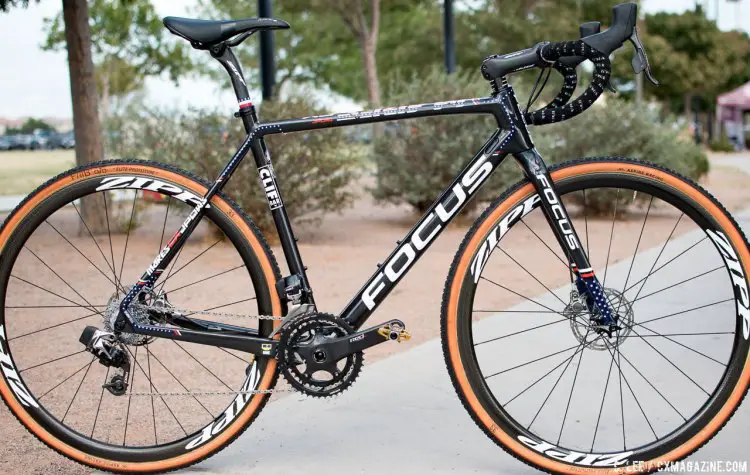
Jeremy Powers’ Focus Mares with SRAM eTap double chainring drivetrain. © A. Yee / Cyclocross Magazine
In a lot of ways I enjoy using a double because it gives you a lot more versatility and in a lot of ways it’s nice to have, especially in a training sense and a cyclocross race when typically if you have a single if you don’t have the cassette range then you have to get off and run, which is okay, too.
I love the one-by system because I used it for five years or four years, but to go back to a double, at least with the technology that we have now, there’s not any downside to it for me because it’s working flawlessly and I’m really enjoying it.
It’s beautiful, I can’t want for other people to ride it because I think that they’ll see the same thing. I’ll be riding the double this weekend and all of the new stuff that comes with, the brakes, the pad compound, the 202 tubulars that I’m running, which are also going to be coming out soon, those all make a beautiful machine.
CXM: There’s been a number of riders who have won four national titles and there’s been one who’s won five. Is that something that you ever think about? The idea of getting number five, getting number six, and where that puts you?
JP: How’s this? I like odd numbers more than I like even numbers.
CXM: All right, that works for me.
JP: Who has won five? I’m curious. Who has won five? It’s not a modern because I’ve never heard of anyone winning five. I don’t know who’s won five.
CXM: Lawrence Malone. He won ’75-’79. It looks like Dan Myrah has four.
JP: Yep.
CXM: I think [Jonathan] Page has four.
JP: Page has four, yeah.
CXM: And Jeremy Powers has four.
JP: Yeah, cool. Well, we’ll have to see, we’ll have to see how this weekend goes.
CXM: Thanks dude. Drive safe. We’ll see you out here this weekend, okay?
JP: You got it. Thanks for the time.

